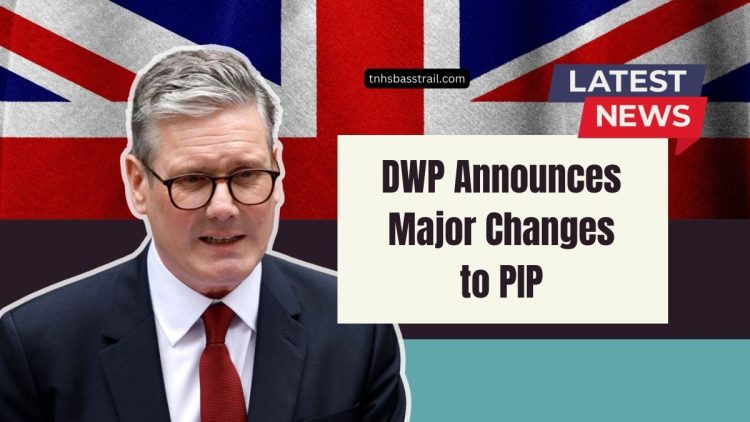The Department for Work and Pensions (DWP) in the UK is rolling out major changes to the Personal Independence Payment (PIP) system.
Starting in 2025, PIP recipients may no longer receive regular cash payments. Instead, the government is proposing a shift towards vouchers and one-off payments. This move aims to streamline the system, but it has sparked concerns among recipients about the potential impact on their financial stability.
In this article, we’ll break down the key details of the new system, how it will affect recipients, and what you need to know to prepare.
Key Features of the Proposed PIP Changes
| Feature | Details |
|---|---|
| Change Type | Replacing regular cash payments with vouchers and one-off payments |
| Affected Groups | PIP claimants, particularly disabled people and those with long-term conditions |
| Financial Impact | £737.20 per four weeks replaced by vouchers, one-off grants |
| Implementation Timeline | Changes still in consultation, with no confirmed start date |
| Alternatives to Cash | Receipt-based reimbursement, vouchers, or product catalogues for aids and appliances |
What is PIP and Why Are These Changes Happening?
Personal Independence Payment (PIP) is a benefit provided by the UK government to help individuals with long-term health issues or disabilities with the additional costs they face.
Currently, PIP payouts can reach up to £737.20 every four weeks. This financial assistance plays a key role in helping people cover their living expenses, such as groceries, utilities, and transportation.
However, the government has proposed changes to make the welfare system more targeted and efficient, as part of their Modernising Support Green Paper. The goal is to ensure that support reaches those who need it most while preventing misuse of the funds.
Proposed Changes to PIP: Vouchers and One-Off Payments
The government is considering the replacement of cash-based payments with alternatives such as:
- Vouchers: Instead of receiving cash, PIP recipients could be given vouchers that can only be used for specific expenses related to their condition. This could include groceries, transportation, or utilities. Vouchers would aim to ensure the money is spent directly on the needs of the recipient, such as essential goods or services.
- One-Off Payments: One-time grants could be provided for large or one-off expenses, such as medical equipment, home adaptations, or mobility aids. This would replace ongoing cash payments for individuals with specific needs.
- Receipt-Based Reimbursement: Another idea under consideration is a receipt-based system where recipients buy necessary items (like aids or appliances) and then submit receipts for reimbursement. This method ensures that funds are used exclusively for medical aids and related expenses.
- Catalogue-Based Support: Instead of giving cash, the government may implement a system where PIP recipients choose their needed items from a catalogue and receive the products directly.
Concerns About the Changes
The proposed changes to PIP have raised concerns, particularly among disabled individuals who rely on the flexibility of cash payments to manage their day-to-day lives. Some key concerns include:
- Limited Spending Flexibility: Vouchers might restrict how individuals can spend their money. For example, they may not be able to use their voucher for essential expenses not covered by the system, such as unexpected emergencies.
- Bureaucracy and Delays: The receipt-based reimbursement system could lead to increased bureaucracy, requiring recipients to navigate complex procedures to access their funds.
- Exclusion of Certain Recipients: Vulnerable individuals without access to the internet or transportation may struggle to meet the requirements for these new systems, potentially reducing access to essential support.
Why Is the Government Making These Changes?
The government justifies these changes as a way to target support more effectively and reduce fraud and misuse of funds. The DWP has stated that the current cash system is outdated and prone to misuse, which increases the financial burden on taxpayers.
By transitioning to vouchers and other systems, the government hopes to provide more personalized and targeted assistance.
Additionally, the government seeks to simplify the administrative process, reducing costs and improving efficiency by eliminating some complex assessments.
How Will This Affect PIP Claimants?
For PIP claimants, the changes will likely result in significant adjustments in how they receive support:
- Vouchers might limit how claimants can manage their finances, potentially making it harder for some to budget or make purchases for unexpected costs.
- One-off payments may not provide the long-term financial stability that regular cash payments offered.
- Claimants who rely on cash payments for flexibility in managing everyday living expenses may struggle with these new restrictions.
What You Can Do as a PIP Recipient
If you are a PIP recipient, it’s important to stay informed about the changes. Here’s how you can prepare:
- Stay Updated: Keep an eye on official announcements from the DWP regarding the exact start date and full details of the reforms.
- Engage in Consultations: The government is inviting feedback from the public. If you have concerns, make sure your voice is heard during the consultation process.
- Plan Ahead: If you rely on cash payments, start planning how the changes might affect your finances. Consider budgeting for vouchers or receipts-based systems.
The DWP’s proposed PIP changes have sparked considerable debate. While the aim is to make the system more efficient and targeted, there are valid concerns about the impact on disabled individuals who rely on cash benefits to manage daily living costs.
As the government moves forward with these changes, staying informed and participating in the consultation process will be crucial to ensuring that your needs are met under the new system.
FAQs
What are the proposed changes to PIP?
The DWP is replacing cash payments with vouchers, one-off grants, and receipt-based reimbursements for PIP claimants.
When will these changes take effect?
The changes are still under consultation, with no confirmed start date. Keep checking for updates from the DWP.
How will these changes affect my benefits?
PIP recipients may face restricted spending through vouchers and could experience delays with receipt-based reimbursements.

